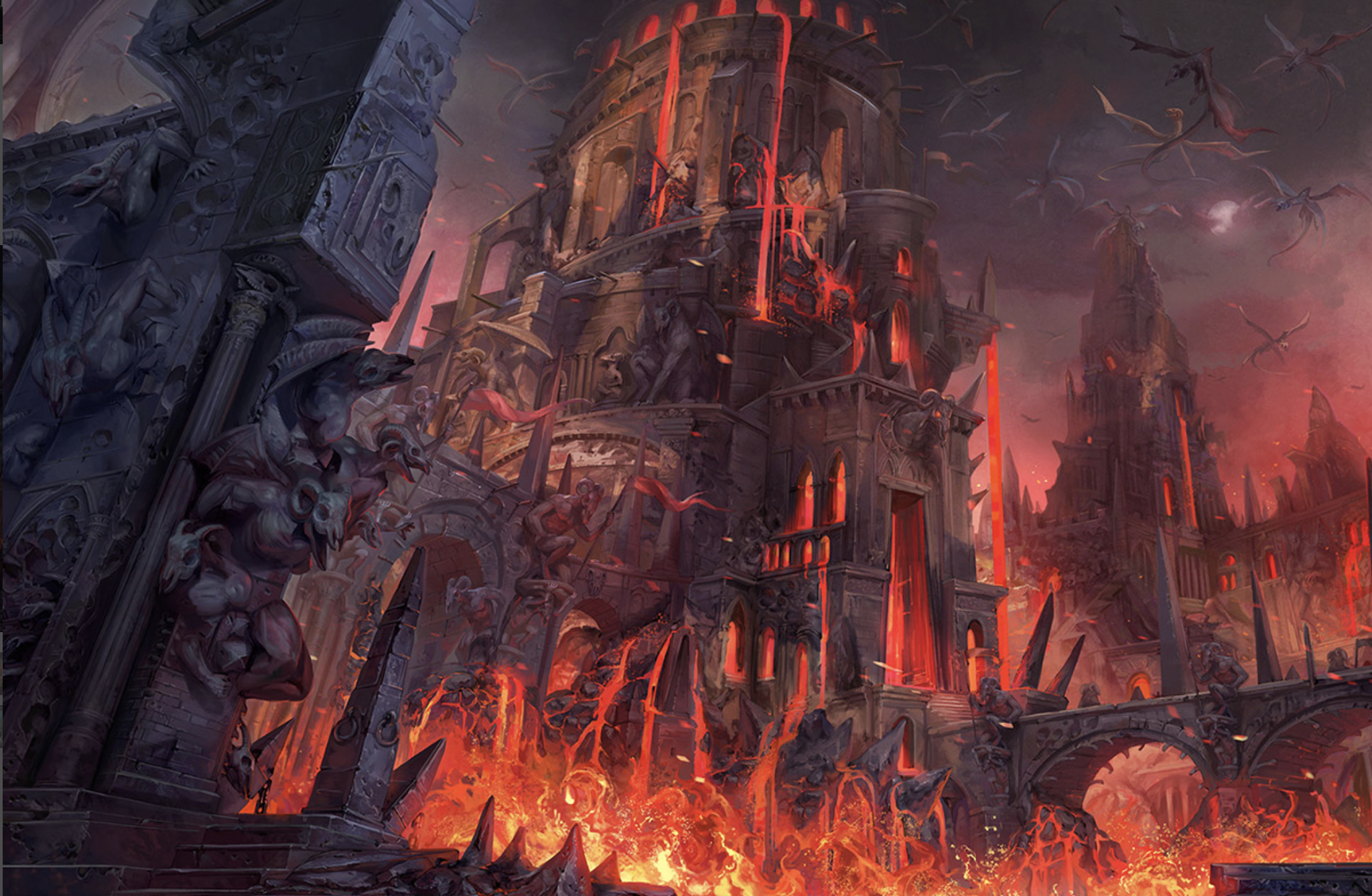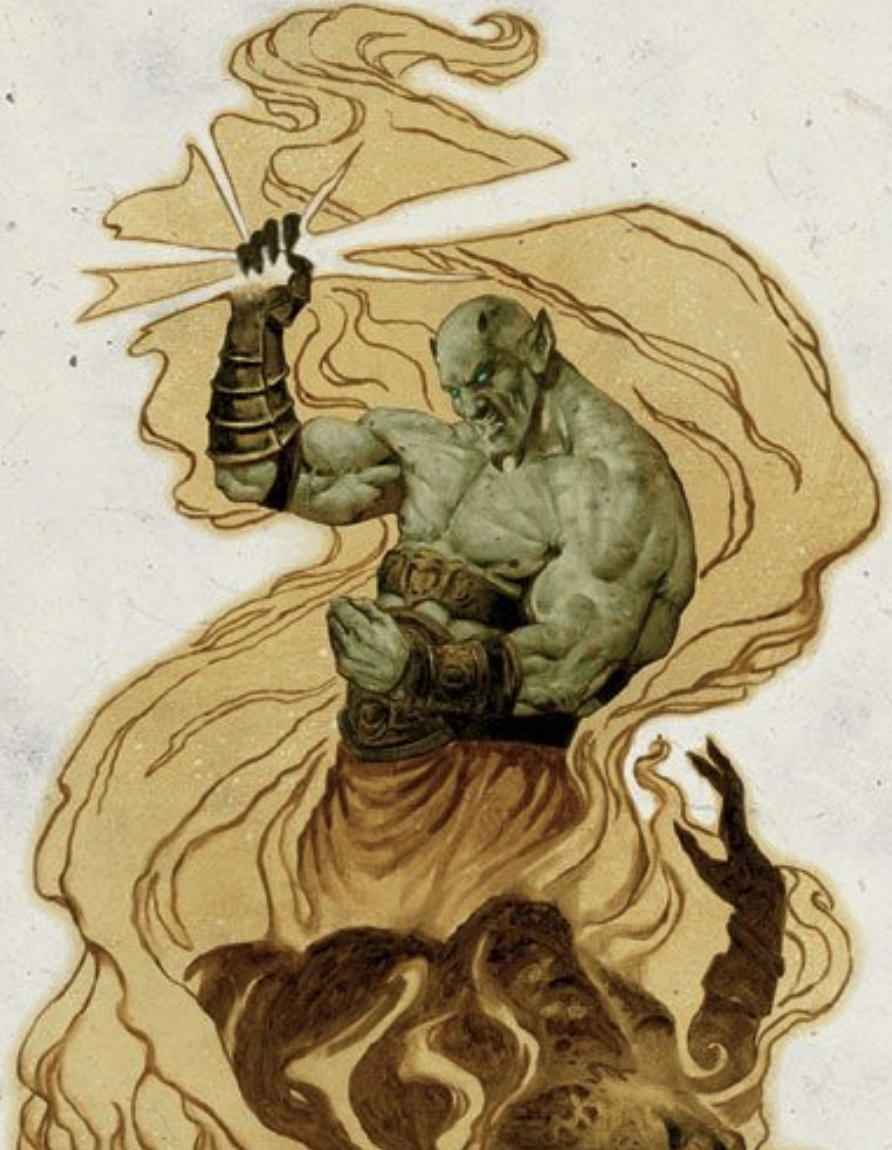Bane
The Black Hand
The diety of tyranny, Bane, the Lord of Darkness is believed to be Suraf's favorite child. He uses his minions to give dark inspiration to a thousand intrigues, to foment fear and hatred in civilized lands, and to reassure the common moratal that tyranny, though it may suffer occasional defeat, will never die. Bane prefers to keep to the shadows, allowing his servants and his son Viggo to carry out his intricate plans. On the rare occasion in which he appears, he takes the form of a shadowy humanoid figure; often bare-chested, sometimes wearing dark armor and a stylish black cloak streaked with red.
Divine Domains
Lawful Evil god of Evil, Destruction, Hatred, Law, and Tyranny
Artifacts
The Black Hand of Bane and the Morningstar of Darkness
Holy Books & Codes
The Book of War (Zā’ūs Sushal Mi)
Divine Symbols & Sigils
Green rays squeezed forth from a black fist
Tenets of Faith
Serve no one but Bane. Fear him always and make others fear him even more than you do. The Black Hand always strikes down those who stand against it in the end. Defy Bane and die; or in death find loyalty to him, for he shall compel it. Submit to the word of Bane as uttered by his ranking clergy, since true power can only be gained through service to him. Spread the dark fear of Bane. It is the doom of those who do not follow him to let power slip through their hands. Those who cross the Black Hand meet their dooms earlier and more harshly than those who worship other deities.
Bane orders his clerics and followers to achieve positions of power within their society, either through force or trickery, or strife. The Black Hand much prefers that his clerics subvert governments and carry out their agendas under cover of the rule of law, but he tolerates a limited amount of discord and debauchery. Torture, beatings, and calculated assassinations frequently come into play in such operations, and rare indeed is the initiate of the Lord of Darkness who does not possess at least rudimentary skill in such enterprises. The church operates under a strict hierarchy; questioning or disobeying the orders of a superior is an insult to Bane's supremacy, and is punishable by torture, disfigurement, or death.
Bane's temples tend to reflect the clergy's regimented doctrines. Tall, sharp-cornered stone structures featuring towers adorned with large spikes and thin windows, most Banite churches suggest the architecture of fortified keeps or small castles. Thin interior passageways lead from an austere foyer to barrackslike common chambers for the lay clergy, each sparsely decorated with tapestries depicting the symbol of Bane or inscribed with embroidered passages from important religious texts.
Bane orders his clerics and followers to achieve positions of power within their society, either through force or trickery, or strife. The Black Hand much prefers that his clerics subvert governments and carry out their agendas under cover of the rule of law, but he tolerates a limited amount of discord and debauchery. Torture, beatings, and calculated assassinations frequently come into play in such operations, and rare indeed is the initiate of the Lord of Darkness who does not possess at least rudimentary skill in such enterprises. The church operates under a strict hierarchy; questioning or disobeying the orders of a superior is an insult to Bane's supremacy, and is punishable by torture, disfigurement, or death.
Bane's temples tend to reflect the clergy's regimented doctrines. Tall, sharp-cornered stone structures featuring towers adorned with large spikes and thin windows, most Banite churches suggest the architecture of fortified keeps or small castles. Thin interior passageways lead from an austere foyer to barrackslike common chambers for the lay clergy, each sparsely decorated with tapestries depicting the symbol of Bane or inscribed with embroidered passages from important religious texts.
Holidays
Conqueror's Devotion, on the 21st of Tirinthal




Comments